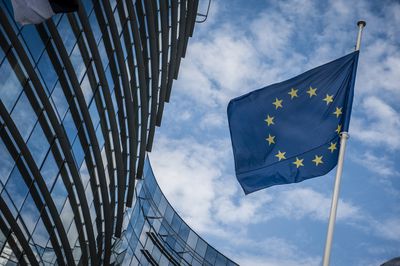New EU rules came into force today that could compel Apple to let users access third-party app stores and permit app sideloading on iPhones and iPads, among other sweeping changes designed to make the digital sector fairer and more competitive.

Under the Digital Markets Act (DMA), the rules will apply to tech giants that meet its "gatekeeper" criteria and force them to open up their various services and platforms to other companies and developers.
Apple is almost certain to be classified as a "gatekeeper" due to the size of its annual turnover in the EU, its ownership and operation of platforms with a large number of active users, and its "entrenched and durable position" due to how long it has met these criteria, and will therefore be subject to the rules set out in the DMA.
The DMA could force Apple to make major changes to the way the App Store, Messages, FaceTime, and Siri work in Europe. For example, it could be forced to allow users to install third-party app stores and sideload apps, give developers the ability to closely interoperate with Apple's own services and promote their offers outside the App Store and use third-party payment systems, and access data gathered by Apple.
One of the more recent additions to the DMA is the requirement to make messaging, voice-calling, and video-calling services interoperable. The interoperability rules theoretically mean that Meta apps like WhatsApp or Messenger could request to interoperate with Apple's iMessage framework, and Apple would be forced to comply within the EU.
The DMA was proposed by the European Commission in December 2020 and agreed by the European Parliament and the Council in record-time, in March 2022. It now moves into a six-month implementation phase and will start to apply on May 2, 2023. After that, within two months and at the latest by July 3, 2023, potential gatekeepers will have to inform the Commission of their core platform services if they meet the thresholds established by the DMA.
Once the Commission has received the complete information, it will have 45 working days to make an assessment as to whether the company in question meets the thresholds and to designate them as gatekeepers. Following their designation, gatekeepers will have six months to comply with the requirements in the DMA, at the latest by March 6, 2024.
"The DMA will change the digital landscape profoundly," said executive vice-president Margrethe Vestager in a statement accompanying a Commission press release. "With it, the EU is taking a pro-active approach to ensuring fair, transparent and contestable digital markets. A small number of large companies hold significant market power in their hands. Gatekeepers enjoying an entrenched position in digital markets will have to show that they are competing fairly. We invite all potential gatekeepers, their competitors or consumer organizations, to come and talk to us about how to best implement the DMA."
If (or more likely, when) Apple is designated a gatekeeper, it will have to make major changes to its iPhone and iPad platforms to accommodate the requirements. In March, before the law was passed, Apple said it was "concerned that some provisions of the DMA will create unnecessary privacy and security vulnerabilities for our users."
Apple is also facing similar legislation in the United States, with U.S. House lawmakers in June introducing antitrust bills that would result in major changes to the tech industry if passed.
Note: Due to the political or social nature of the discussion regarding this topic, the discussion thread is located in our Political News forum. All forum members and site visitors are welcome to read and follow the thread, but posting is limited to forum members with at least 100 posts.























